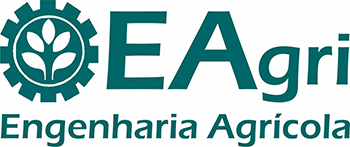The objective of this work was to develop techniques to apply wasted water in agriculture, providing a better reuse of water, a natural resource which is scarce and very bad avaliable. Cucumber (Cucumis sativus L.) crop was used inside a greenhouse, with plots irrigated with treated water and plots irrigated with reclaimed water from residential sewage treatment, fed by a subsurface irrigation system, in order to assess the average production, soil fertility and water soil nutrient arrangement. In the soil basic analyse, increased levels of P, K and CTC were detected in the effluent irrigated soil. This same treatment demonstrated increased levels of N, nitrate, Ca, Mg, Zn and S for water soil analyse. In the average production per plant, the irrigated treatment by effluent water showed values of 2,769.6 g, higher than the values of 1,968.6 g which were verified in the treated water irrigated treatment, which demonstrates how important these techniques are for nutrient supply and productivity increase.
wasted water; localized irrigation; Cucumis sativus L















